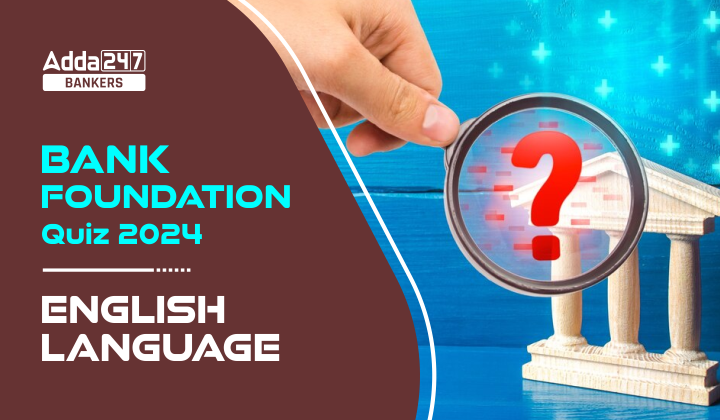Directions (1- 5): Read the following passage carefully and answer the questions given below them. Certain words/phrases have been printed in bold to help you locate them while answering some of the questions.
Are China’s ambitions to “lead the world” in artificial intelligence (AI) by 2030 credible? China’s rapid emergence as an AI powerhouse is often hyped and sensationalized, variously provoking alarm and enthusiasm that can sometimes overshadow the reality of real progress. At the same time, critical challenges remain in China’s quest to become “the world’s premier AI innovation center” and build up an AI industry of 1 trillion RMB (about $150 billion) in the process. In China’s “rise” in AI, the active efforts of private enterprises have predated more recent policy support. However, since the State Council released the New Generation AI Development Plan in July 2017, there have been a number of indicators that its implementation is advancing throughout all levels of government. Although the future trajectory of its AI revolution remains to be seen, China is rapidly building momentum to harness the power of state support and the dynamism of private enterprises in a new model of innovation.
The initial impetus for the development of a national AI strategy may very well have come from the private sector, which has pioneered China’s AI revolution to date. Baidu, in particular, has actively pursued an “AI first” agenda since launching the Institute for Deep Learning in 2013 and then establishing the Silicon Valley AI Lab in 2014. Perhaps of note, in 2015, Robin Li (Li Yanhong), Baidu’s CEO, in his capacity as a delegate to the Chinese People’s Political Consultative Conference, proposed the creation of a “China Brain” Plan that would devote extensive state investment to AI, even welcoming military funding for such an initiative. In particular, Li called for the government to “support capable companies in building an open platform offering AI-related basic resources and public services.” Coincidentally (or perhaps not), the plan that has since emerged does resemble his initial proposal, and major tech companies like Baidu, Alibaba, and Tencent (“BAT”) may have been quite actively involved in advising its formulation.
The decision to develop this AI plan appears to have been catalyzed in part by AlphaGo’s triumph over Go world champion Lee Sedol in March 2016, which has been characterized as a “Sputnik moment” for China. This feat occurred at least a decade earlier than experts had anticipated AI could master Go, given the game’s complexity. Such a notable advance highlighted the sophistication of U.S. and Western AI, whereas by contrast Chinese AI had achieved fewer cutting-edge advances at that. Against the backdrop of the U.S. AI plans and strategies released in mid- and late- 2016 under the Obama administration, AlphaGo was seen as another indication of the U.S. advancement disruptive technologies that could place China at a disadvantage. The cultural resonance of the game of Go may also account for the intense interest and attention that this event seems to have received from Chinese leaders. As of July 2016, central authorities had formally approved the drafting of a new AI plan, building upon prior research on AI strategy led by Chinese Academy of Engineering academician and AI expert Pan Yunhe.
The plan has acted as an impetus for new energy and motion across China’s science and technology bureaucracies over the six or so months since its release. For instance, in August 2017, the National Natural Science Foundation of China released Guidelines on AI Basic Research Urgent Management Projects, identifying a series of research priorities to receive millions in new funding, including new brain-inspired computing architectures and methods and man-machine cooperative hybrid intelligence. In October 2017, the National Development and Reform Commission (NDRC) has announced a parallel AI Innovation and Development Megaproject, highlighting priorities that included advances in deep learning AI chips and highly reliable intelligent unmanned systems and service robots.
Q1. How is the emergence of Artificial Intelligence (AI) gaining interest and support?
(a) China wants to become the super power in science and technology.
(b) Private enterprises are strengthening its progress.
(c) Government is showing its concern for advancement in its implementation.
(d) Both (b) and (c)
(e) All are correct.
Q2. “China Brain” plan has been proposed to
(a) make it available for trade.
(b) establish it throughout the world
(c) make the young brains involve in AI
(d) formulate the AI related resources
(e) All of the above
Q3. Which of the following sentences is not true in the context of the passage?
(a) Lee Sedol is the world champion of the game Go.
(b) Major Tech countries are least interested in developing AI plan.
(c) Public and Private enterprises have been supporting the development of AI plan.
(d) AlphaGo is an advanced AI program of China.
(e) All are correct
Q4. Which of the following is an appropriate title of the passage?
(a) The new model of innovation
(b) The Artificial progress
(c) China’s AI agenda advances
(d) The AlphaGo triumph
(e) Towards becoming a superpower
Q5. How is it correct to say that the last few months exhibit significant advancement of AI?
(I) Many guidelines have been issued regarding AI basic research projects.
(II) Many new AI projects have received funding, with a focus on AI chips, cloud services, and open-source platforms.
(III) Brain-inspired computing architectures and methods and man-machine cooperative hybrid intelligence are given priorities.
(a) Only (I) is correct
(b) Only (II) is correct
(c) Both (I) and (II) are correct
(d) Both (II) and (III) are correct
(e) All are correct
Solutions:
S1. Ans. (d)
Sol. Refer the first paragraph of the passage “Although the future trajectory of its AI revolution remains to be seen, China is rapidly building momentum to harness the power of state support and the dynamism of private enterprises in a new model of innovation.” Hence both the options are correct.
S2. Ans. (d)
Sol. Sentence (d) is best among the other options. Refer the second paragraph of the passage.
S3. Ans. (d)
Sol. Sentence (d) is not true as AlphaGo is designed and developed by U.S not China.
S4. Ans. (c)
Sol. “China’s AI agenda advances” is an appropriate title of the passage. The passage is about the China’s plan to progress in the field of AI.
S5. Ans. (e)
Sol. All the given sentences are correct. Refer the last paragraph of the passage.
. .





 English Language Quiz For Bank Foundatio...
English Language Quiz For Bank Foundatio...
 English Language Quiz For Bank Mains Exa...
English Language Quiz For Bank Mains Exa...


